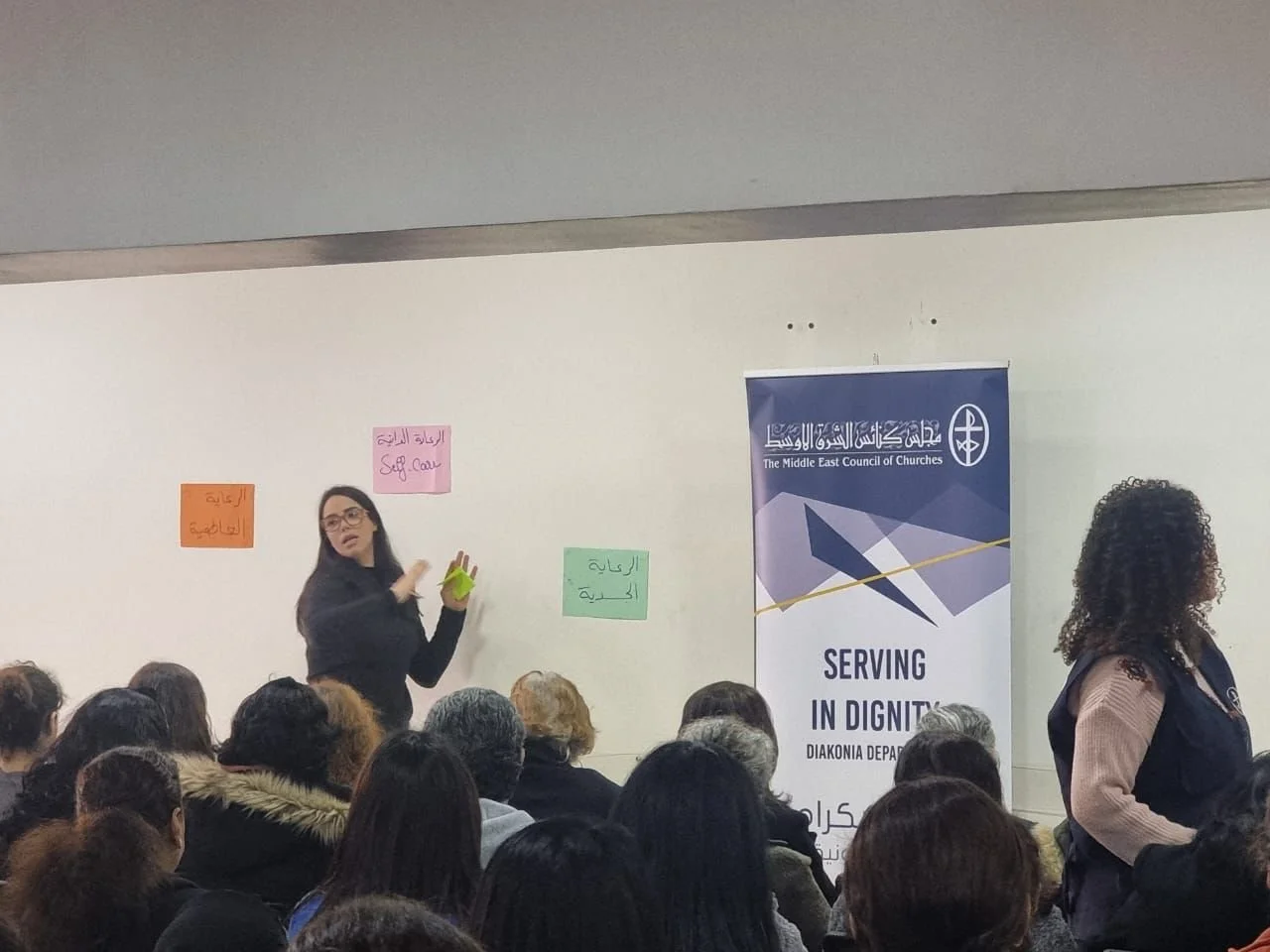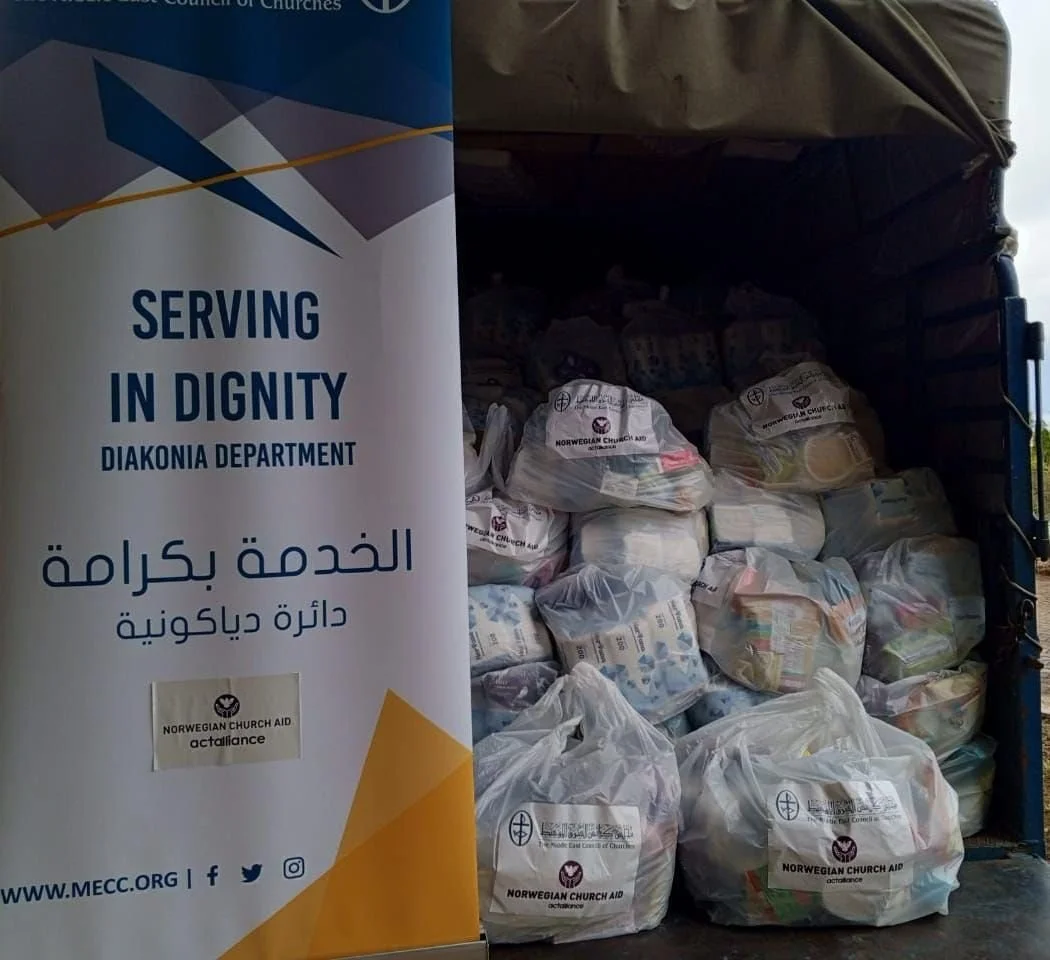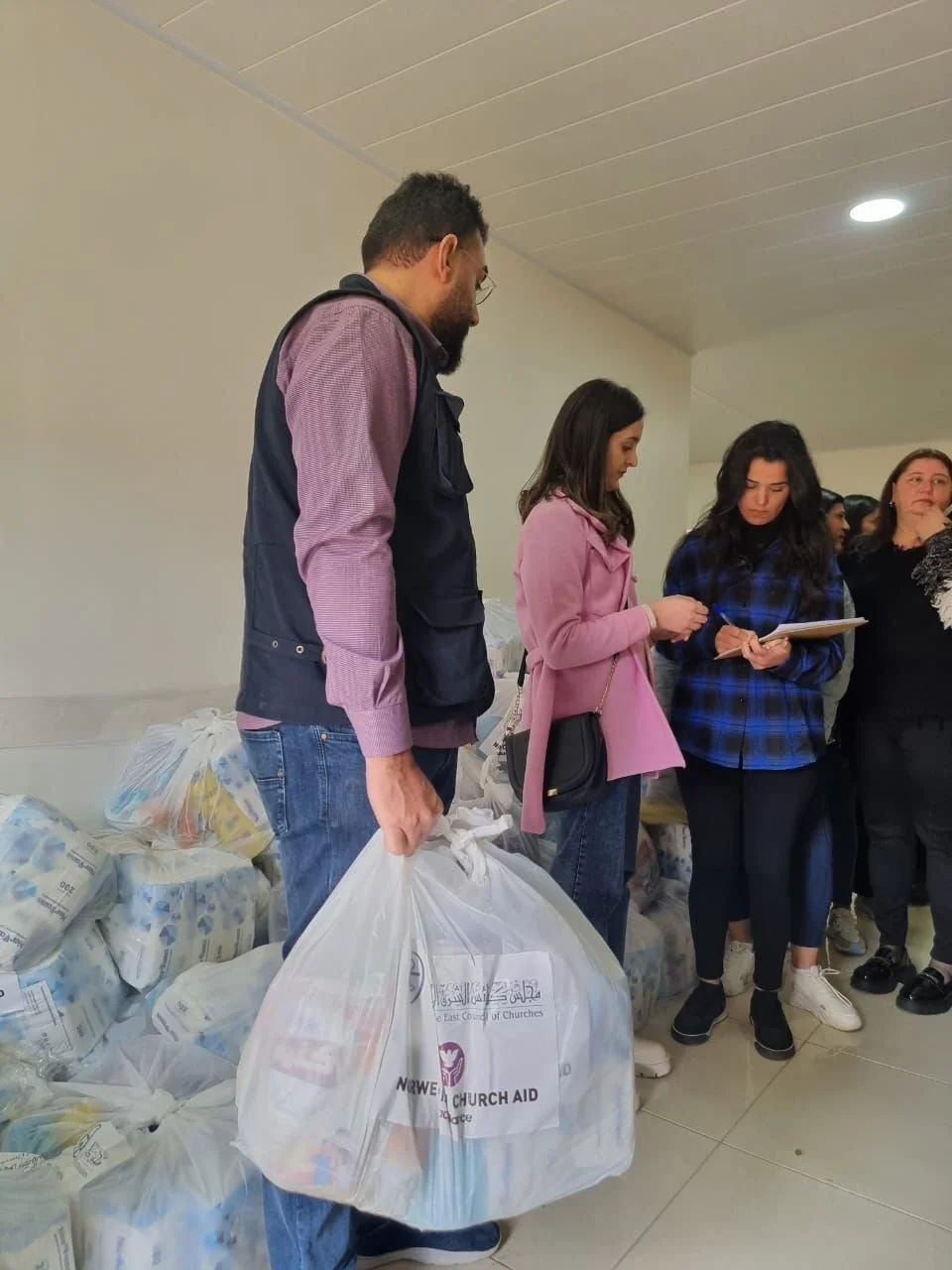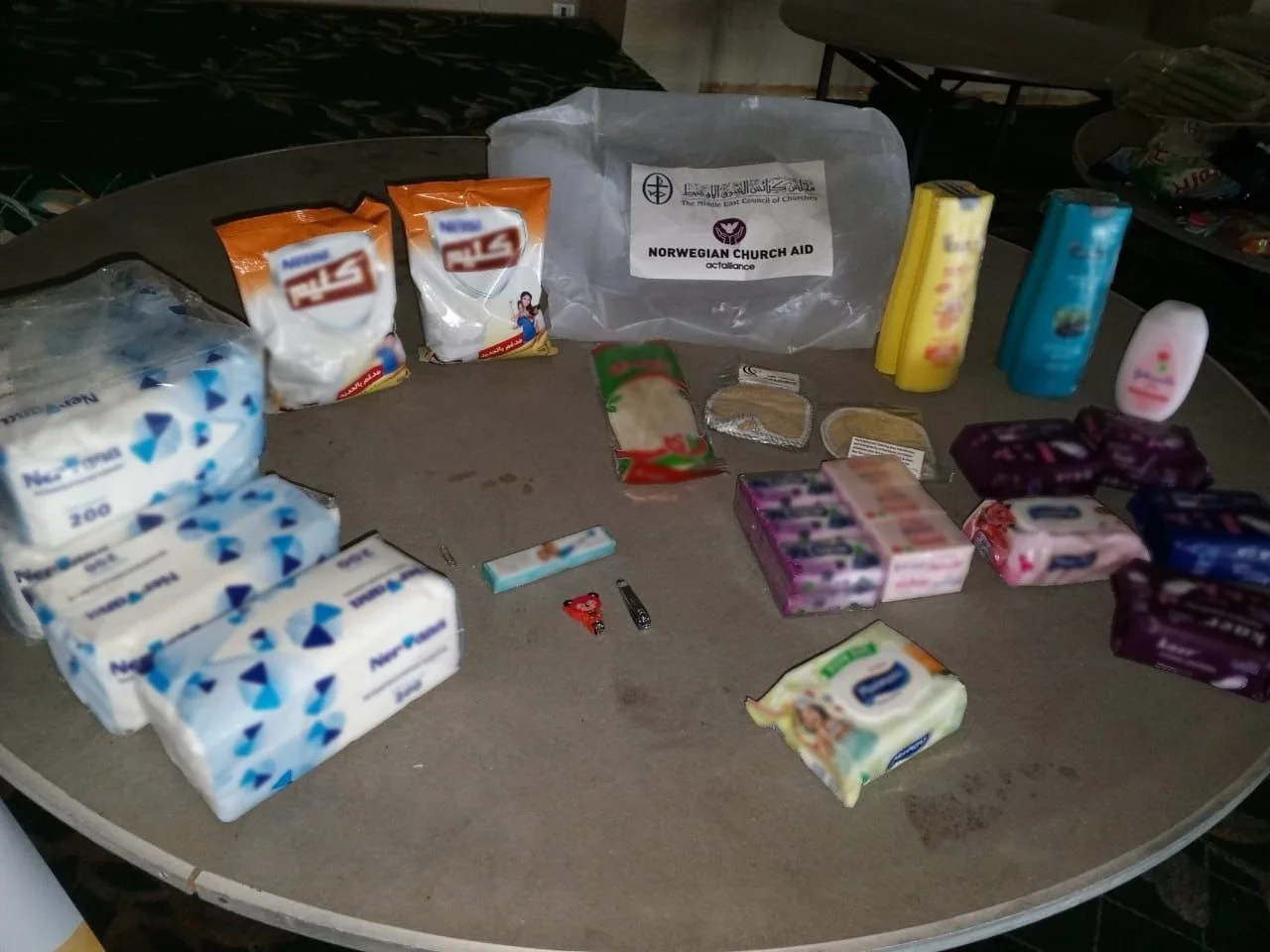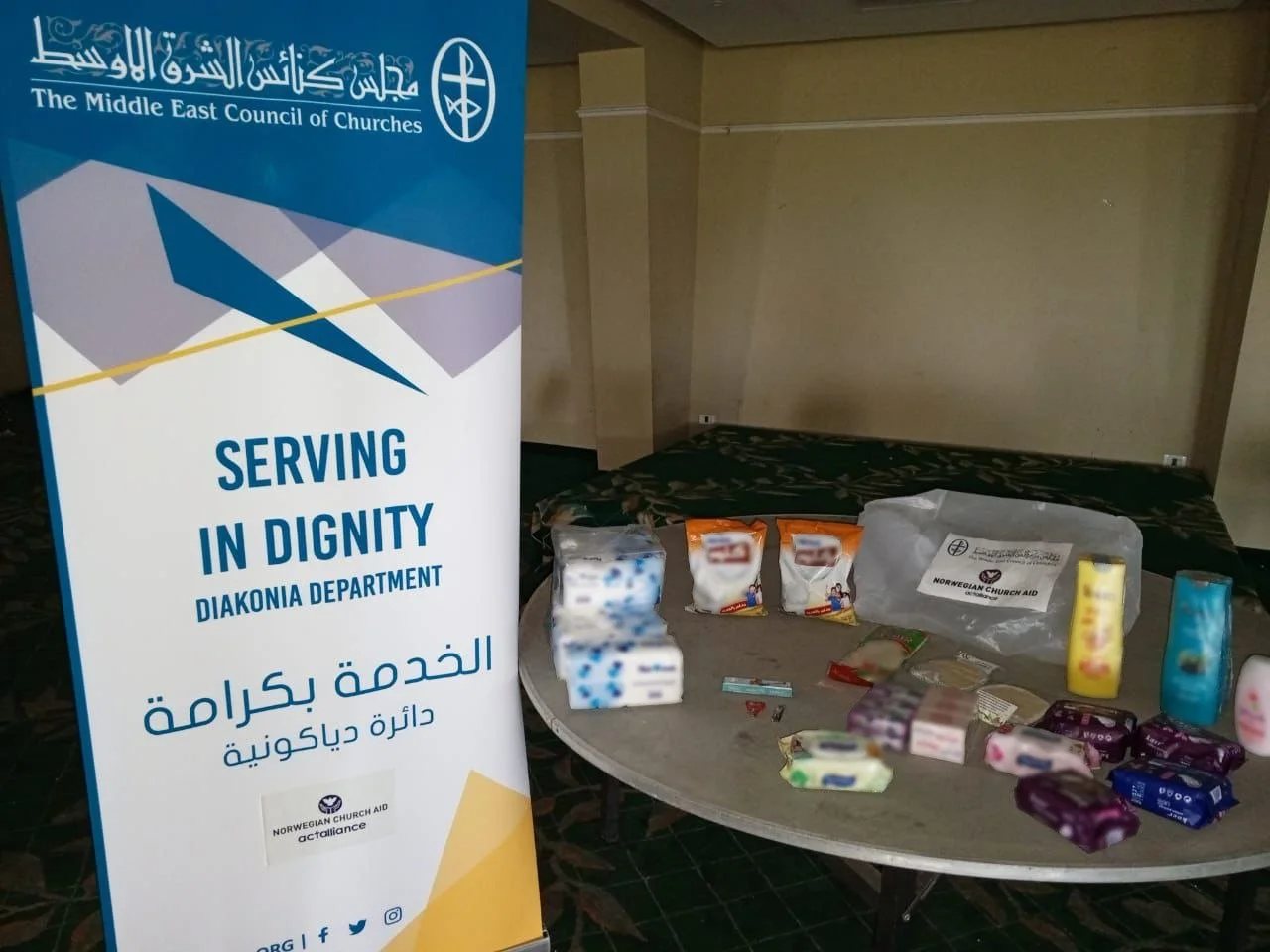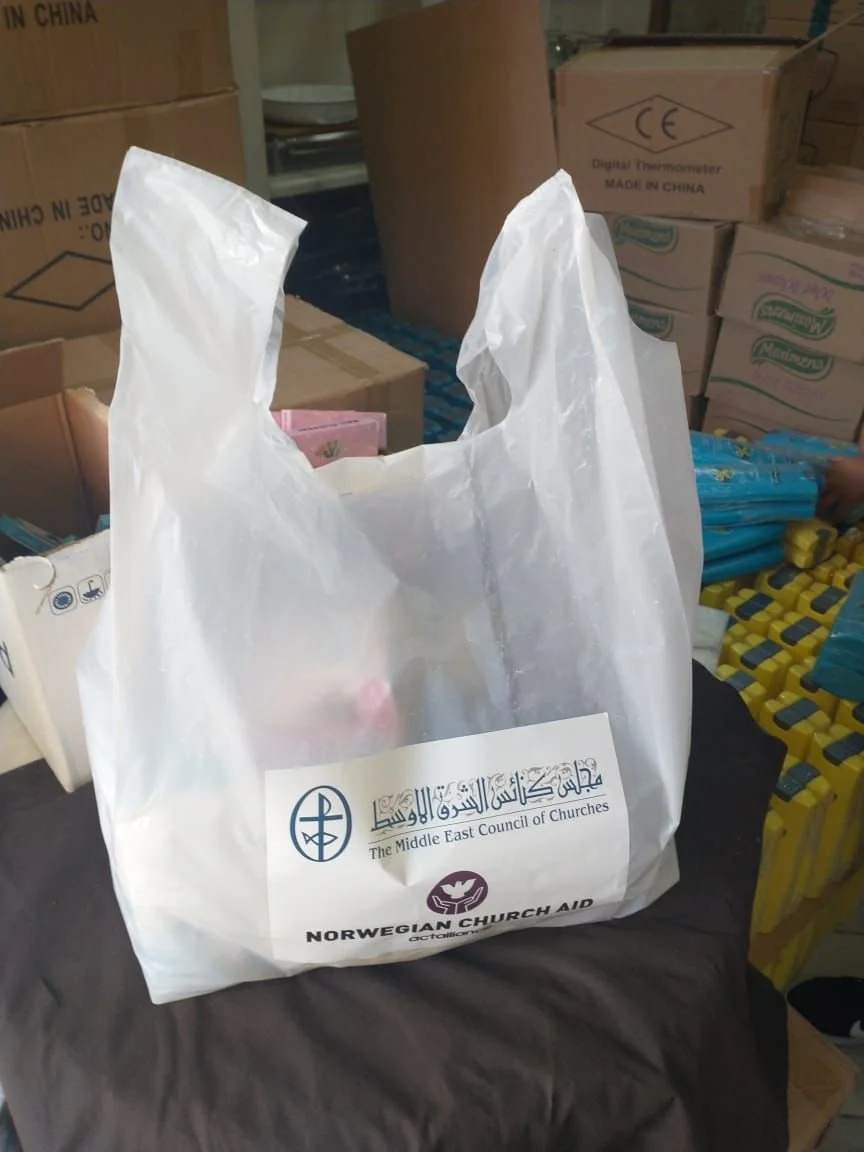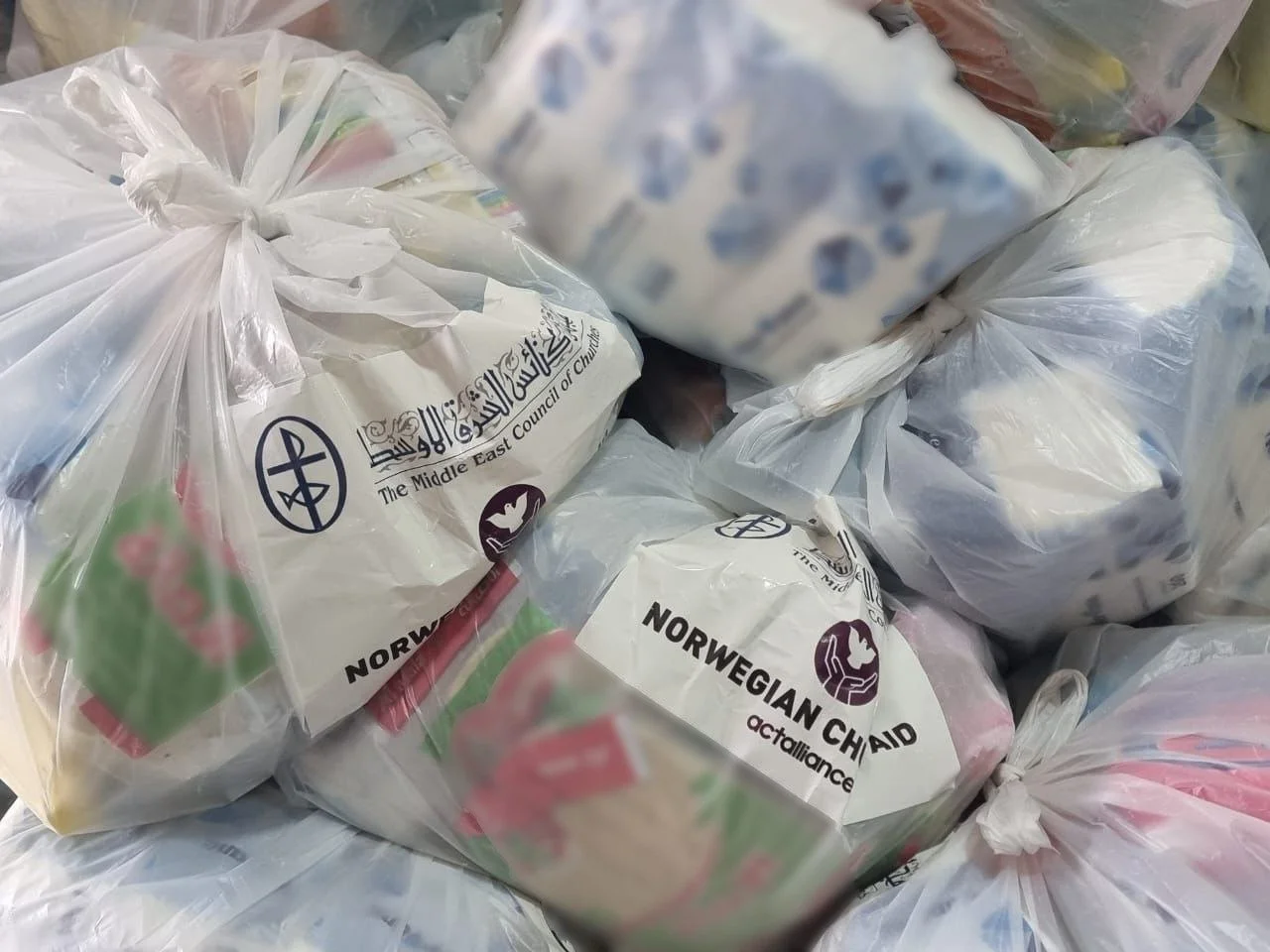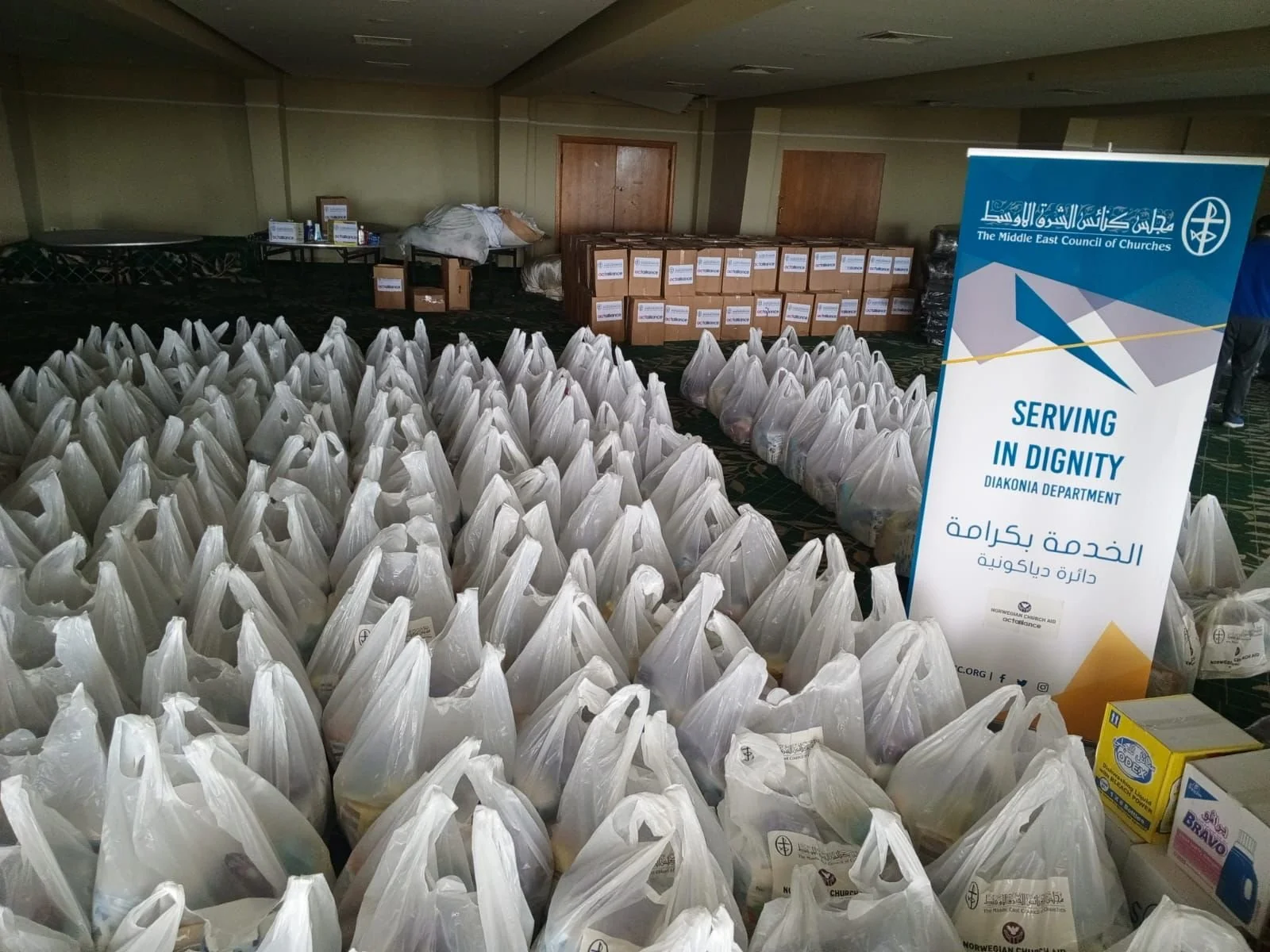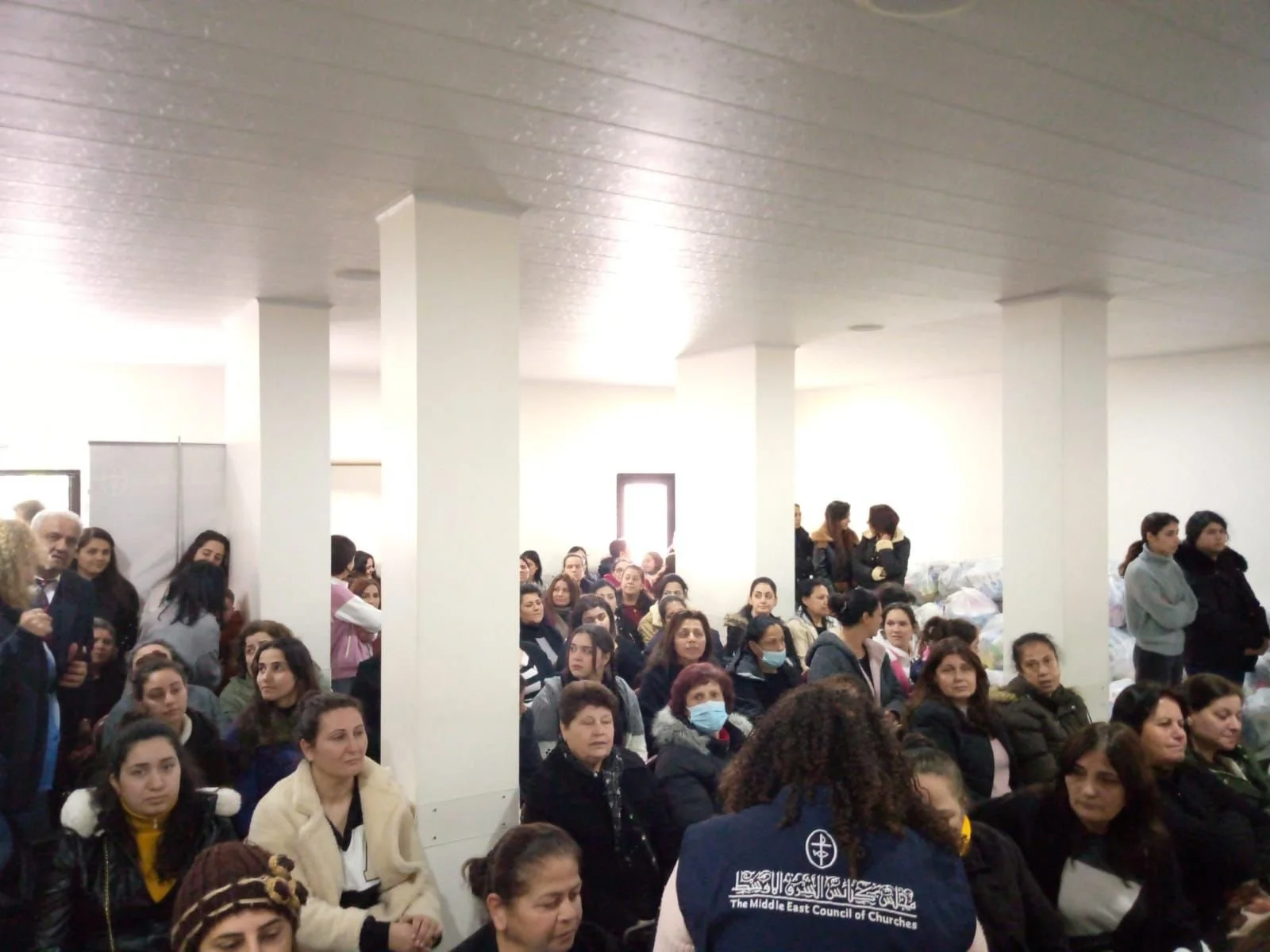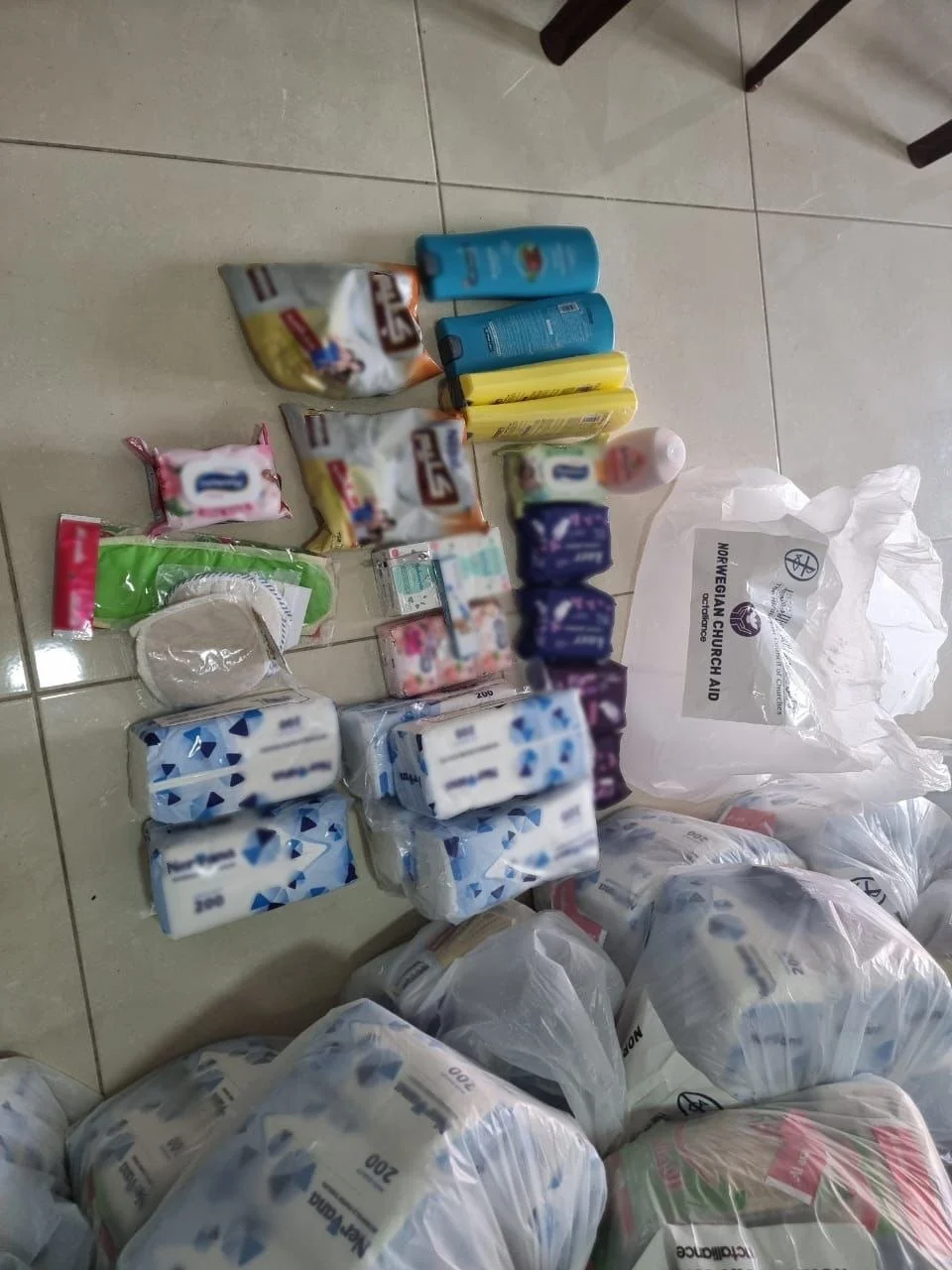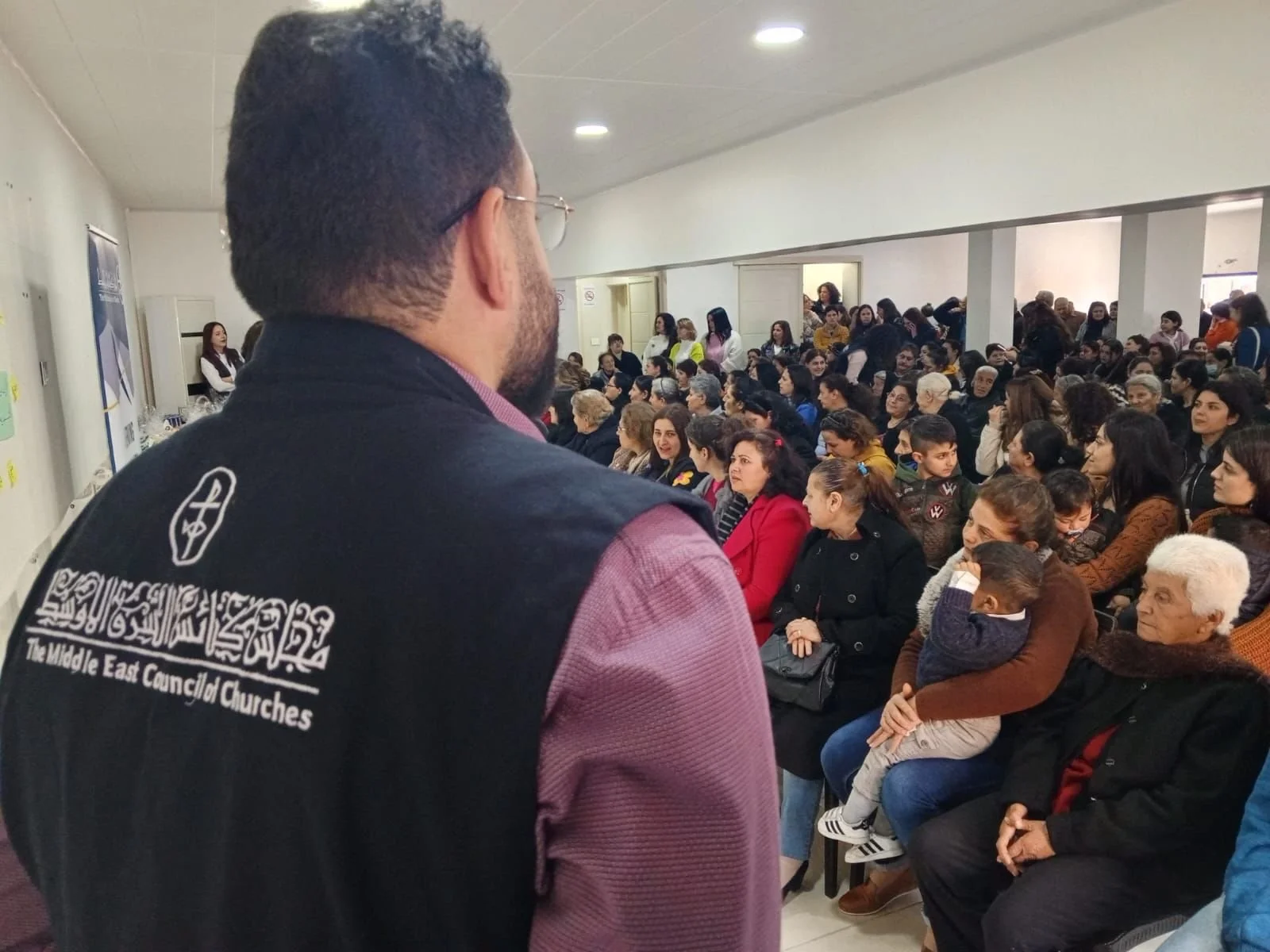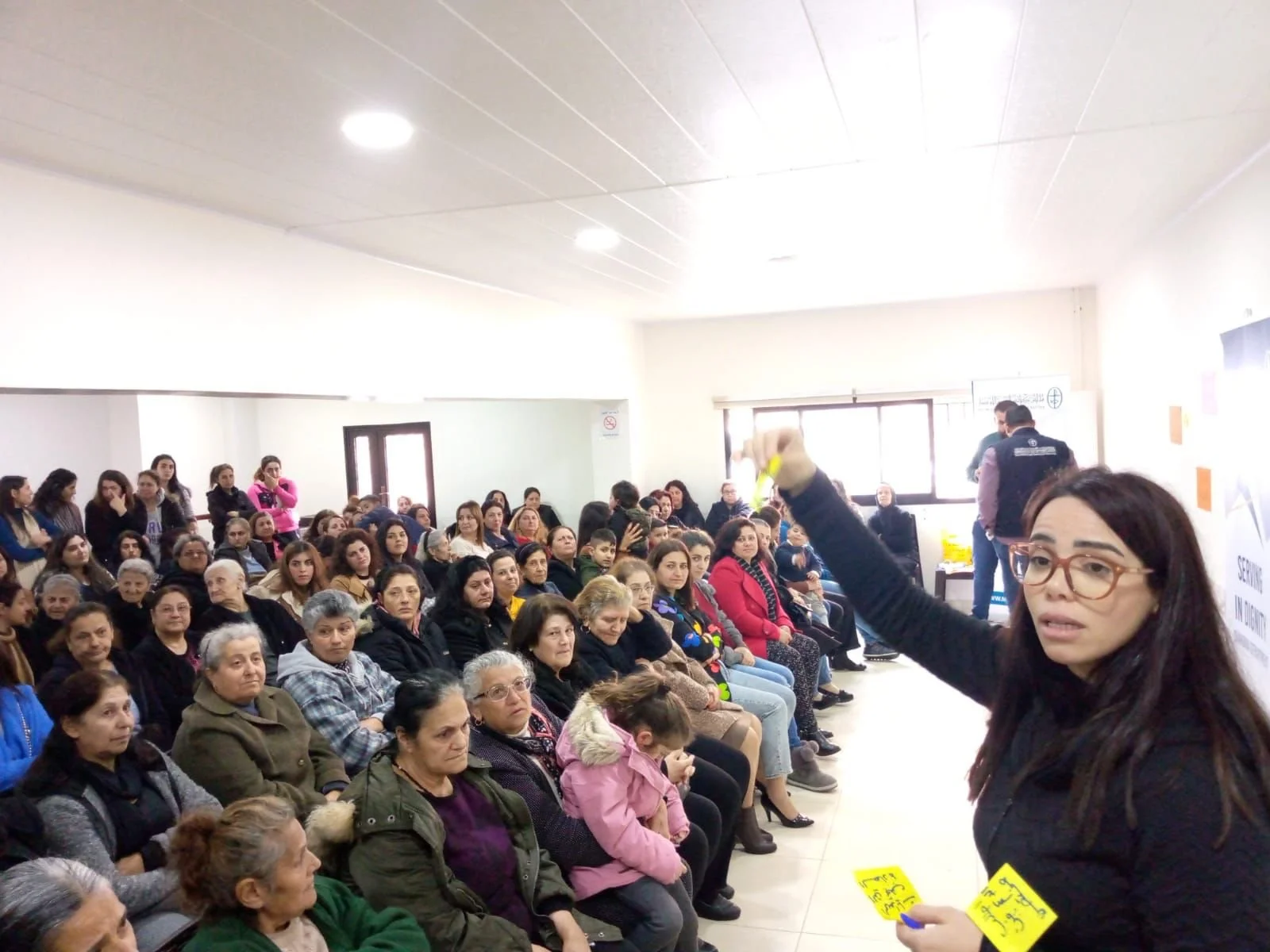The Middle East Council of Churches Contributes in Empowering Displaced Women in the South of Lebanon
You can find some photos at the end of the text.
With the worsening security circumstances in the South of Lebanon due to the ongoing conflicts in the region, its residents are still suffering from many living challenges and psychological pressures that increase daily in the face of an unknown future. In this context, psychological and social support has become necessary, especially for the most vulnerable citizens, in order to alleviate their pain and help them overcome the difficulties surrounding them with hope and determination.
Hence, the Middle East Council of Churches (MECC) continues its relief work in the South of Lebanon with the aim of supporting the internally displaced people in various regions and shelter centers by providing in-kind assistance as well as psychological and social support. Thus, the MECC Diakonia and Social Service Department, Lebanon’s Office, implemented training courses for many displaced women on “self-care and services specialized in protecting women and children”. At the end of the courses, the participants received food and personal kits dedicated for women and children.
These courses were held with the support of the international organization Norwegian Church Aid (NCA). Some of them were implemented at the headquarters of the municipality of Debel, and organized by the Women’s Affairs Committee in the municipality, with the participation of 280 women from the region. As well as, similar courses were also completed at the headquarters of the Merouaniyeh municipality, with the participation of 220 women who were displaced to the Al Zahrani area, including 45 women living in a collective shelter.
During the courses, participants were able to express themselves and talk about what is bothering them in a safe space, where they learned how to find solutions to the problems they may face in their daily lives, in addition to ways to take care of themselves and of the children, especially in times of distress and crises. The courses also contributed in bridging distances between the beneficiaries and building new friendships between them, allowing them to share their expertise and experiences.

